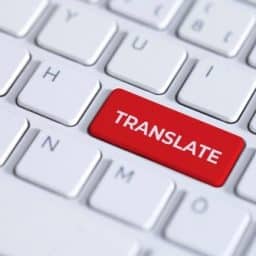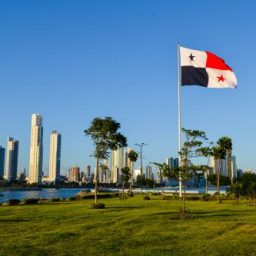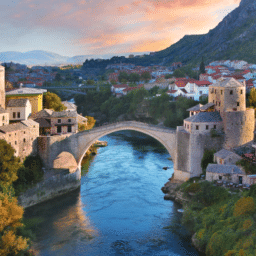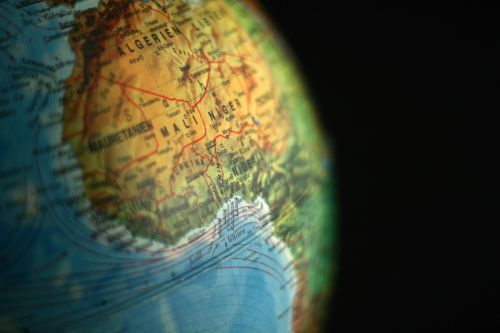
According to linguistics, there are over seven thousand languages in the world and countless dialects beside that. This may come as a surprise, as many of us live in countries with only one official language. However, there are places with incredible language diversity, and Mali is one of them.
How did the history of Mali influence its modern multilingualism? Which language is being used in the government institutions and which one is the most widely spoken in the everyday life? In this article, we will cover everything you should know about the languages of Mali.
Contents
The Republic of Mali
The Republic of Mali is a landlocked country in West Africa, the eighth-largest country on the continent with a population of over 19 million. Its largest city and capital is Bamako, which is one of the cities with the fastest population growth in the world. Mali is divided into ten regions, and its borders in the north reach the middle of the Sahara Desert, while the southern part of the country is in the Sudanian savanna with the rivers Niger and Senegal passing through it, and this is where the largest part of the population lives. The key industry of Mali is agriculture, and its largest crop export is cotton. In addition, Mali is the third-largest gold exporter in Africa.
There are many ethnic groups in Mali. The largest of them is Bambara, making up 36.5% of the population. Other ethnic groups of Mali are: Fulani, Sarakole, Senufo, Dogon, Malinke (also called Mandinka), Bobo, Songhai, and Tuareg. Members of other ethnic groups make up to 5% of the Mali population.
A brief history of Mali
Rock paintings in present-day Mali date back to prehistoric times, while farming took place as early as 5000 BC. The first towns and cities were established in the first millennium BC. The territory of present-day Mali was once part of three powerful empires: the Ghana Empire, the Mali Empire, and the Songhai Empire.
The earliest was the Ghana Empire, which was located on major trade routes and made huge profits from trade. It was dominated by the Soninke, a Mande-speaking people. The empire existed from the 8th century until 1078, when it was conquered by the Almoravids.
The Ghana Empire was then replaced by the Mali Empire. In the years 1312-1332 it was ruled by Musa I, who is considered one of the richest people in history, and it was then that the Mali Empire experienced its greatest prosperity. The empire rapidly disintegrated in the 15th century and was replaced by the Songhai Empire, which fell in 1591 as a result of the Moroccan invasion.
In the seventeenth to nineteenth centuries many new small countries were founded in West Africa, and they competed with each other for control of the land. Attempts to unite them were unsuccessful. In the second half of the nineteenth century began the colonial expansion of France, and at the beginning of the twentieth century it controlled almost the entire territory of present-day Mali. It was then that its inhabitants began to oppose the French colonizers. After the end of World War II, the independence movement grew stronger, but the colony gained full independence as the Republic of Mali only on September 22, 1960, and to this day this date is celebrated as Independence Day in this country.


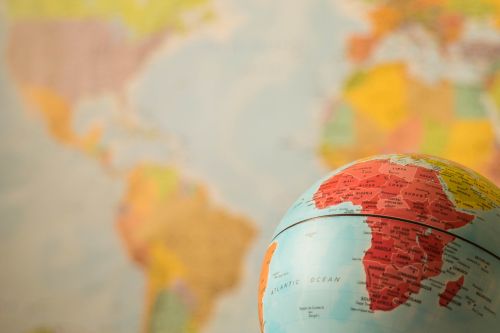
The languages of Mali
Due to its history and ethnic diversity, there are many languages spoken in Mali. Ethnologue has reported as many as sixty-three Malian languages. There are thirteen indigenous languages that have a legal status of national languages, and most of them are from the Mande Language Family, which is the largest language family of Africa.
French language
French was introduced to Mali by the French colonialists. It is now the official language of Mali as stated in the 1982 decree, but the estimates of the number of people who can speak French are low. In 1986 it was only 21% of the population, and the newest data from 2009 shows that 33.7% of men and only 21.5% of women are literate in it. French is only the second language for most of them, and it is considered only a part of the school curriculum and spoken only in formal situations.
Bambara language
The Bambara language is the most widely spoken language in Mali. It is especially popular in central and southern Mali. Because of how many Malians speak Bambara it is considered the trade language. Bambara originates from the Kingdom of Segou and can be written using the Latin, N’Ko, or Arabic alphabets, of which in Mali it is most common to use the Latin and N’Ko alphabets. In addition to Mali, Bambara is also spoken by the inhabitants of Burkina Faso, Côte d’Ivoire, Gambia, Ghana, Guinea, Senegal, and Sierra Leone.
Other languages in Mali
There are thirteen languages officially recognized as national languages of Mali: Bamanankan, Bomu, Bozo, Dɔgɔsɔ, Fulfulde, Hassaniya Arabic, Mamara, Maninkakan, Soninke, Soŋoy, Syenara, Tamasheq, Xaasongaxanŋo.
Sign languages
There are three sign languages used to communicate and acquire formal education in Mali: American Sign Language (ASL), Tebul Sign Language, and Bamako Sign Language. The most frequently used one is the American Sign Language, which the people of Mali got to know thanks to the American missionary Andrew Foster, sometimes called the “Father of the Deaf”, because he established thirty-two schools for the deaf in Africa. The other languages are used much less widely than ASL; the Tebul Sign Language is a village sign language of the village of Favorite in the Dogon region of Mali, and the Bamako Sign Language developed in the urban after work tea-circles of Bamako and is used predominantly by men.
Learn languages with us
We hope you found this article interesting. If you would like to learn French – the official language in the Republic of Mali – join our language course. We offer both courses for individual clients and company courses. We want to make sure that each of our students has the possibility of choosing the best method of learning in order to meet their goals.
Need a French or other translator? We have a solution to your problem! Feel free to contact us!






